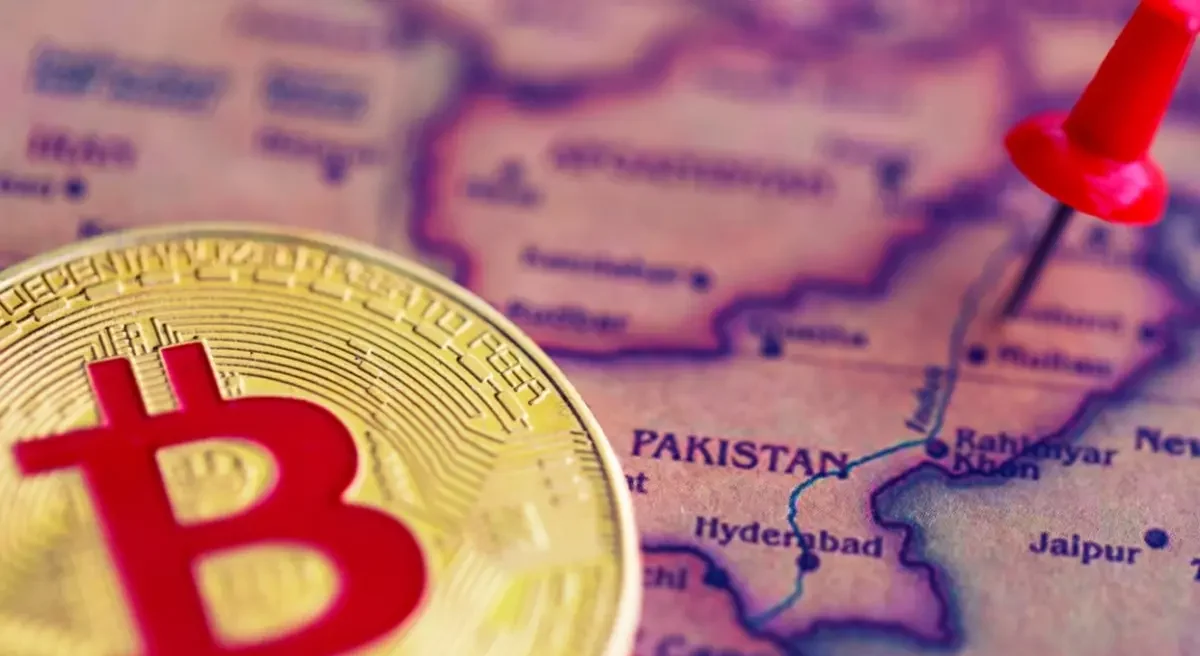Pakistan has announced its intentions to establish a Strategic Bitcoin Reserve, marking a daring entry into the realm of digital finance. Head of the Pakistan Crypto Council (PCC) and Chief Advisor to the Finance Minister, Bilal Bin Saqib, presented this historic ruling. The project demonstrates a significant shift in the nation’s financial policy, thereby positioning cryptocurrencies as a valuable component of its economic strategy. Pakistan’s action highlights its commitment to modernising its banking system and embracing the digital economy as digital assets become increasingly accepted worldwide.
Understanding Bitcoin as a Strategic Financial Asset
The government of Pakistan recognizes the transformative potential of cryptocurrencies in diversifying national reserves and enhancing economic resilience. Establishing a national Bitcoin Exchange Withdrawals, helps the nation reduce its reliance on US dollars and adopt blockchain as a tool for transparency, economic stability, and long-term stability.
Already among the top nations in terms of bitcoin adoption, Pakistan has over 20 million active crypto users. The decision to include Bitcoin in the national reserve demonstrates an effort to stay ahead of financial innovation and meet public demand in decentralized finance.
Origin and Function of the Pakistan Crypto Council
The government has just established the Pakistan Crypto Council to assist the shift in digital assets. Senior authorities, including the Chairman of the Securities and Exchange Commission of Pakistan, the Governor of the State Bank of Pakistan, and the Finance Minister, compose this group. Social entrepreneur and supporter of tech-driven change Bilal Bin Saqib leads the Council.
His appointment marks a new chapter in Pakistani digital policy, one that celebrates creativity, youth involvement, and international cooperation. Guiding the regulatory framework, ensuring compliance, and facilitating the broad adoption of blockchain technology by both the public and private sectors will fall to the Council.
Harness Surplus Energy for AI and Crypto Mining
Pakistan is examining its Bitcoin reserves and making infrastructure investments to support its blockchain ambitions. The finance ministry has allocated 2,000 megawatts of power to support artificial intelligence data centers and Bitcoin mining. This calculated action tackles two urgent problems. The demand to create a technologically focused economy and the need to utilize excess electricity.
The nation aims to attract foreign capital and create job opportunities. Stimulate regional economic growth by converting surplus electricity into a profitable asset. Emphasizing artificial intelligence also helps to align with the larger digital strategy by integrating blockchain, big data, and automation into a coherent development framework.
Inviting Pakistan’s young people into the Web3 economy
With almost 60% of its population under thirty, Pakistan is maximising the potential of its youthful, technologically inclined generation. The PCC aims to establish regulatory sandboxes that enable companies to innovate within a secure legal framework. It also aims to launch upskilling initiatives to allow young people to enter the rapidly growing Web3 employment sector.

Pakistan aims to be a key participant in the global digital. Economy by equipping its young people with the capabilities to excel in blockchain and related disciplines. This strategy promotes entrepreneurship, helps solve unemployment, and increases human capital development.
In line with trends in global blockchain technology
Pakistan’s involvement in Bitcoin reserves positions it alongside other nations investigating similar projects. Digital assets are becoming increasingly important for governments worldwide as part of their economic plans. The issue covers attempts at central bank digital currencies, stablecoin research, and the regulation of bitcoin exchanges.
The choice made by Pakistan could impact other underdeveloped countries seeking to diversify their financial portfolios and enhance their resilience against fluctuations in global currencies. Incorporating blockchain technology into its national processes enables Pakistan to establish itself as a progressive nation, ready for the opportunities and challenges of the digital age.
Political and Monetary Consequences
The adoption of a national Bitcoin reserve has more general geopolitical consequences than purely economic ones. It marks a change in financial orientation and a demand for more autonomy from Western-dominated conventional monetary systems.
Countries are currently exploring the adoption of cryptocurrency. Pakistan’s action might further affect trade dynamics and influence negotiations with foreign financial institutions. Through strategic planning, Pakistan can leverage blockchain not only for economic development but also to enhance its global influence.
Summary
Starting a Strategic Bitcoin Reserve is more than just a symbolic action. It offers a methodical, forward-looking approach for incorporating emerging technology into national strategy. Pakistan’s financial landscape is poised for a significant transformation. The Crypto Council is actively fostering an environment that encourages the adoption of blockchain technology. If this project is successful, other countries negotiating the direction of digital finance could find inspiration in it.


